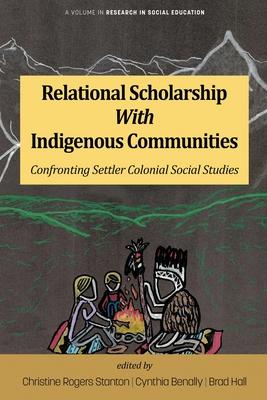This book brings together Indigenous and non-Indigenous scholars, practitioners, and community partners from across the U.S. to share experiences of, stories about, and hopes for anti-colonial social studies. By sharing these examples, the book also provides methodological guidance for researchers, teacher educators, curriculum developers, and policymakers looking to learn about scholarly processes and partnerships with Indigenous communities. In addition to individual chapters, contributors engaged in conversations and collaboration between chapters and about the book as a whole.
Chapter co-authors and thought partners dialogued about the following questions:
- What is relational research, and how can it help confront settler colonial
content, processes, and praxis within social studies education?
- How has social studies education and research (mis)represented and (mis)
applied Indigenous Ways of Knowing?
- How can a re-envisioning of social studies educational research be more
intentionally participatory and relational to improve social studies teaching
and learning, especially for and with Indigenous communities and youth?
